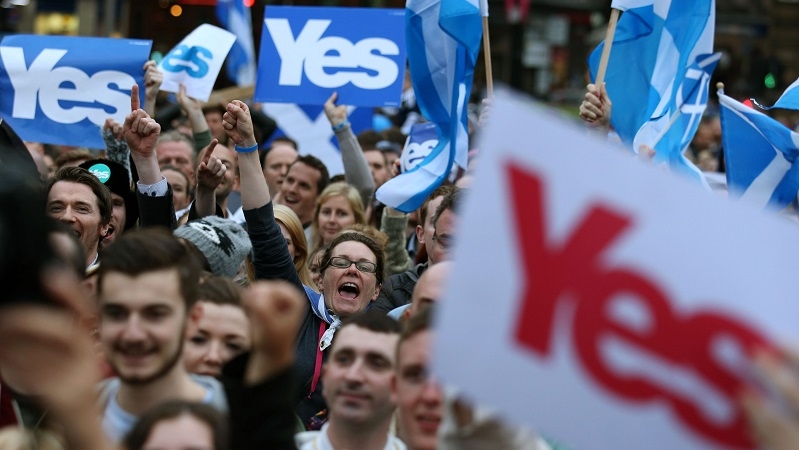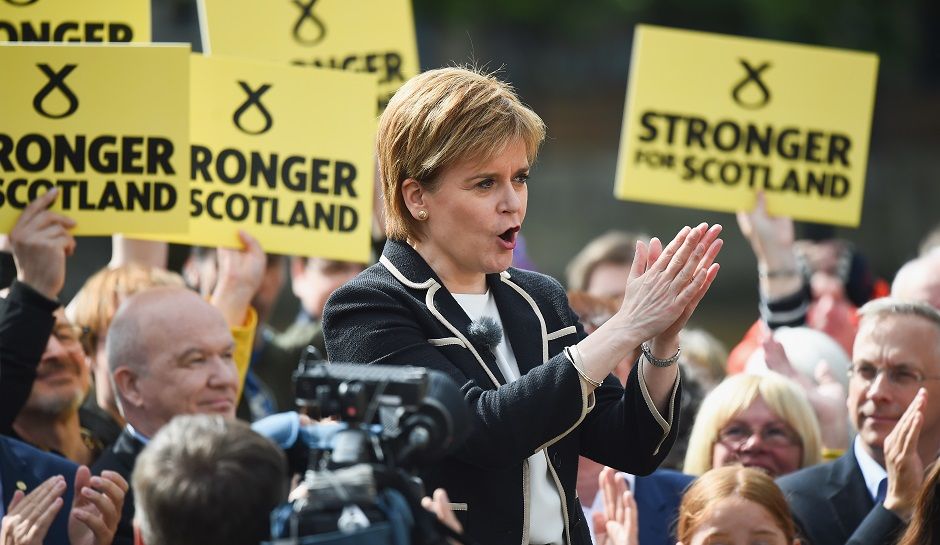If 24 hours is a long time in politics, then 4 years may feel to some like a lifetime. Just think where we were in 2014. Donald Trump was most famous for being a television personality, while Jeremy Corbyn was an obscure backbench MP. ‘Brexit’, the single term that currently defines politics in the UK, would have held no literal or figurative meaning. Perhaps most eye-openingly of all, the Liberal Democrats were in government. Has it really only been 4 years?
The reason for this trip down memory lane is that in 2014 the main event on the political calendar was the Scottish independence referendum. Having been in power in Scotland for several years, the Scottish National Party (SNP) finally managed to force the government in Westminster to allow them an independence referendum. As with many other votes in recent years, the result was expected to be a foregone conclusion with Scotland likely to back remaining in the UK by a comfortable margin.

Though Scottish voters did opt against leaving, the margin of victory was only 55% to 45%, far closer than anyone expected. Despite defeat, the SNP had the wind in their sails as more and more people seemed to be won over to their cause. In the general election held the following year, they took 56 of the 59 seats available in Scotland. If all this was not enough, the Brexit vote seemed the perfect pretext for a renewed campaign for independence – the UK as a whole was dragging Scotland out of the EU against Scots’ own wishes. It appeared to many a potent illustration of Scotland’s unhappy subservience to the union as a whole. Another independence referendum seemed to be a matter of when, not if.
Fast forward a few years, however, and amidst the chaos of Brexit Scottish independence appears to have been put firmly on the backburner. The SNP, while still the biggest party in Scotland, has lost seats in both the Scottish and the UK Parliament, matching its declining share of the vote. Opinion polling is almost unanimous in showing Scots substantially opposing independence while plans for a second referendum have been shelved for the time being. Questions are being asked as to why, at such a key juncture, the SNP and its key issue are both losing momentum.
The answer to this strange case may lie, as politics often seems to at the moment, in the public’s ideas of elitism and anti-elitism. It is fair to say that a certain degree of Scottish identity (though certainly not all of it) stems from Scots’ perceived differences with the traditionally more powerful English south of the border, who historically have often tried to ride roughshod over Scottish interests. To their credit the SNP exploited these circumstances effectively, portraying themselves as the voice of the Scottish people, taking it upon themselves to stand up to an English ‘elite’ – in Westminster and elsewhere – unwilling to give Scotland its rightful say in how its own affairs are run.
This is all well and good, and is certainly among the reasons for the party’s success, but there is only so long any anti-elitist political grouping can remain in power before it begins to become an elite itself. After over a decade in power, the SNP seems, in the eyes of many Scots, to be turning into the kind of establishment party is has previously railed against. Indeed, throughout the recent years of political change in the UK, SNP leader and Scottish first minister Nicola Sturgeon remains one of the few familiar faces to have remained at the forefront of national politics, becoming a member of the establishment almost by default. In any democracy even the most formidable of political parties can only remain in power for so long before voters start to seriously consider the alternatives again.

At the same time, and partly as a consequence, the SNPs main competitors are gaining ground. Those backing an anti-establishment left-leaning party are increasingly being drawn back towards the Labour party, given its changing identity under the leadership of Jeremy Corbyn. Meanwhile, older voters who retain sympathy with the idea of remaining in the UK have turned towards the Conservatives, who have been given a new lease of life in Scotland largely thanks to their leader in the country, Ruth Davidson. The SNP is having its dominance eaten away at both sides.
Sturgeon and her party clearly need to find some way of revitalising the independence movement. Whether it be through a new leader or the introduction of more radical policies, the SNP have to find some way of reasserting what makes them so different from the other parties on offer. Otherwise, it could be a lot longer than four years until the next independence vote.


